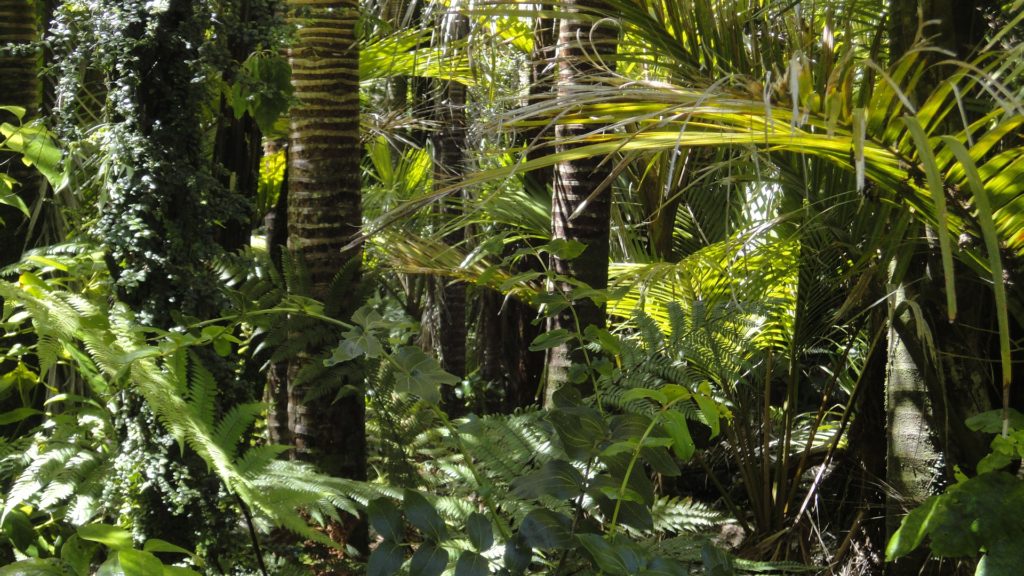Tropical forests are sometimes referred to as the “lungs of the planet,” and for good reason – the high plant biomass of tropical regions produces a large portion of the oxygen we breathe and absorbs significant amounts of carbon dioxide. Rainfall, nutrient availability, and amount of disturbance (natural or human) a forest experiences can all affect its ability to take up carbon.

Credit: Creative Commons CC-0
In a major collaborative study of 26 sites, including the Luquillo LTER site, in collaboration with the EU-funded ROBIN (the Role of Biodiversity In climate change mitigation) project and other forest researchers, water availability stood out as the most important factor affecting forest biomass. Access to abundant water is especially critical for growth of large tropical canopy trees, whose height and exposure to direct sunlight lead to increased drought stress relative to smaller trees. Climate change is expected to increase the frequency and severity of atmospheric drought in the tropics, which could reduce biomass growth of large trees, leading to less carbon storage ability overall in these forests.
To better understand how biotic and abiotic factors affect forest carbon storage, the team collected and analyzed data from sites across the main forest biomes in lowland Neotropics ranging from Mexico to Brazil. At each site they measured water availability, soil fertility, and key functional plant traits (specific leaf area, wood density and maximal diameter of tree trunks) thought to be important for biomass dynamics. In addition to the strong connection between water and biomass growth, the researchers also found that species diversity has a strong independent effect on tropical forest biomass dynamics, which had previously only been demonstrated in experimental studies and in relatively simple systems.
If the findings reflect long-term trends, the study suggests that biodiversity enhances carbon storage and components of productivity but does not affect net carbon sequestration potential. Species richness increases carbon stocks and forest productivity, leading to larger biomass dynamics, but also to higher biomass loss attributable to plant mortality, thus no significant effect on net biomass change. But perhaps more importantly, high tree biodiversity makes tropical forests more resilient to climate change by maintaining a variety of plant functions and growth, dilution of pathogens, niche complementarity, the selection effect and the insurance effect.
Biodiversity is more than merely species richness, because it encompasses forest attributes such as vegetation quality and quantity. These attributes are very strong drivers of biomass fluctuation, indicating that biodiversity directly shapes ecosystem functioning. Additionally, this analysis suggests that tree size and size-dependent processes (e.g., water transport) are important factors in shaping biomass dynamics of tropical forests. Unexpectedly, soil fertility did not have a significant impact on net biomass change, though the researchers caution that more comprehensive soil data is needed from many of the sites to fully understand the relative importance of soil features.
Taking a large-scale comparative approach helps provide broader insight into the functioning of biodiverse systems, including how dominant species in a community impact overall productivity and biomass flux, or how changes in an environmental condition may impact biomass. If water availability continues to fluctuate more widely or droughts are more frequent in tropical forest biomes, knowing how the system will respond is key to developing targeted conservation efforts across multiple scales.
-Kristen Weiss
Sources: Poorter et al. Global Ecology and Biogeography. 2017. Biodiversity and climate determine the functioning of Neotropical forests. DOI: 10.1111/geb.12668




